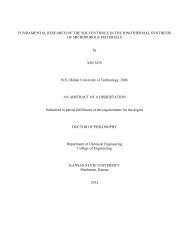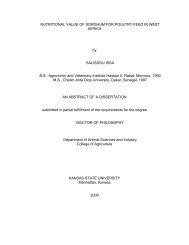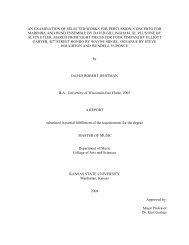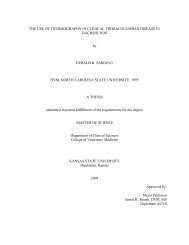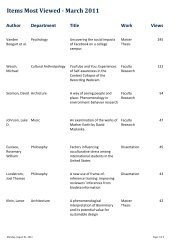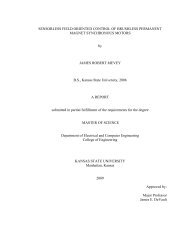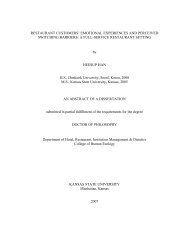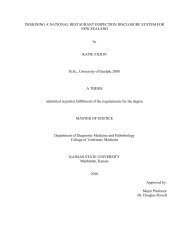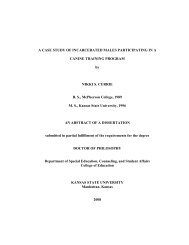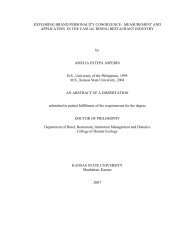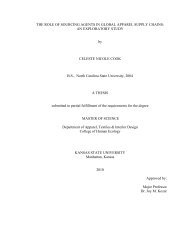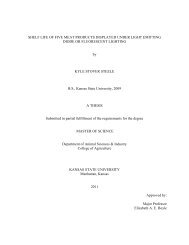SELFISH INTENTIONS - K-REx - Kansas State University
SELFISH INTENTIONS - K-REx - Kansas State University
SELFISH INTENTIONS - K-REx - Kansas State University
You also want an ePaper? Increase the reach of your titles
YUMPU automatically turns print PDFs into web optimized ePapers that Google loves.
Downing therefore asked for divorce on the same grounds that Susanna had claimed: extreme<br />
cruelty. And he also asked that she be required to pay him the sum of $584 plus his furniture and<br />
whatever else the Court could provide for “equitable relief.”<br />
Susanna Downing denied William Downing’s claims, and it appeared that the case was<br />
headed for a lengthy series of legal claims and counter-claims. But then William Downing<br />
withdrew his entire petition, and as quickly as it had begun, it was over. On March 23, 1899, the<br />
Clay County district judge granted the divorce on the grounds that Susanna Downing had<br />
originally claimed: “The Court further finds upon the evidence adduced that said defendant has<br />
been guilty of extreme cruelty toward said plaintiff as claimed in her said petition and that<br />
because of said acts of extreme cruelty, said plaintiff is entitled to be divorced from said<br />
defendant on account of the fault of said defendant.” 152<br />
But in a twist, the judge also noted a rather surprising property settlement. William<br />
Downing would be paid $100, considerably smaller than the $584 he had asked for, but Susanna<br />
Downing, now once again Susanna Sanders, would be responsible for all family debts. In<br />
addition, in one of those dreary lists that tend to accompany divorce decrees, the judge<br />
enumerated the property to which William was entitled: three hogs, one cherry bedroom set, one<br />
spring, mattress, bedding, one stove and pipe, ten chairs, three window blinds and fixtures, one<br />
poker table, one rocking chair, one hammer, two saws, one water bucket, two spittoons, and one<br />
wash set. What had happened? It appears that William and Susanna Downing were probably<br />
guilty of the collusion that district judges worried about. In all likelihood, William had agreed to<br />
drop his counter suit in exchange for a reasonable property settlement.<br />
152 Downing v Downing, Clay Center District Court, Case No. 4549, <strong>State</strong> of <strong>Kansas</strong> (District Court Journal Entry<br />
March 24, 1899).<br />
67



